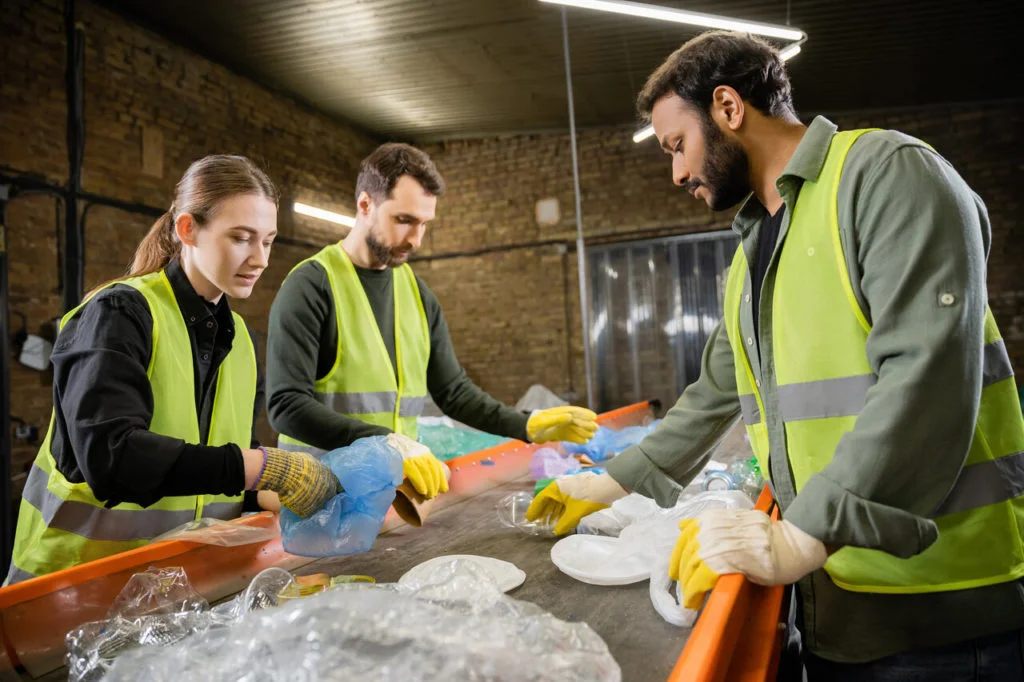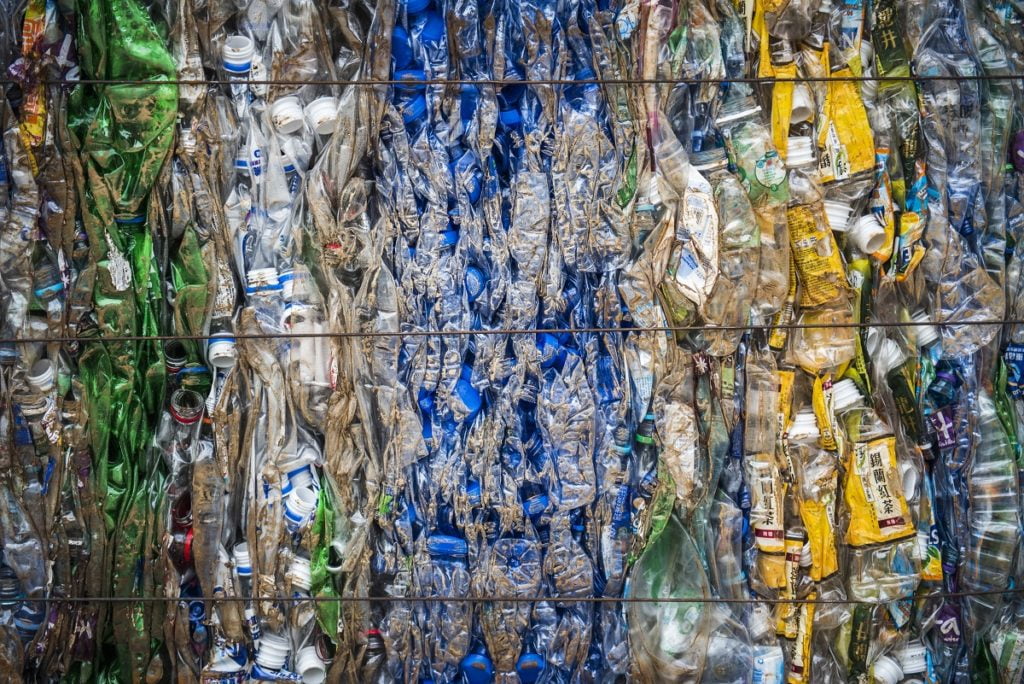In recent years, the automotive industry has undergone a substantial transformation, with a growing emphasis on sustainability and innovation becoming increasingly imperative. As one of the world’s largest manufacturing sectors, the automotive industry faces mounting pressure to adopt environmentally responsible practices in line with evolving global sustainability standards. Consequently, the industry is exploring innovative waste management solutions – including plastic reprocessing – that foster enduring and resource-efficient progress. Pulse Plastics, an innovative UK-based independent specialist plastic solution provider, recognises the immense potential of plastic reprocessing as a vital strategy for promoting sustainability in the automotive sector.
Plastic reprocessing enables the conversion of waste plastic materials into reusable raw materials suitable for use in the manufacturing process. This creates a closed-loop system that not only minimises waste output but also supports resource conservation, providing a greener, more sustainable form of waste management. Given the automotive industry’s substantial plastic consumption, embracing plastic reprocessing can help the sector address its waste management challenges and establish a more ecologically responsible system.
In this blog, we will explore the pivotal role of plastic reprocessing in advancing the green transformation of the automotive industry. We will discuss the benefits that plastic reprocessing affords within the industry, the challenges it seeks to address, and the real-world implementations that demonstrate its efficacy. Join us as we examine the vital interplay between plastic reprocessing and automotive manufacturing, unveiling their collaborative potential to foster a more sustainable and eco-conscious future for the sector.
1. The Pressing Need for Innovative Waste Management in the Automotive Industry
The automotive industry is marked by rapid innovation and growth, constantly adapting to changing consumer preferences and addressing evolving environmental concerns. As such, this industry generates a considerable volume of waste plastic throughout the manufacturing, assembly, and disposal processes. The mounting challenge of dealing with these waste materials in an eco-friendly manner has led to the exploration of innovative waste management solutions, such as plastic reprocessing.
By harnessing the power of plastic reprocessing, the automotive industry can convert waste plastic into reusable raw materials, effectively creating closed-loop systems. These systems significantly reduce the sector’s environmental footprint, promote resource conservation, and contribute to the overall sustainability goals within automotive manufacturing.
2. The Multifaceted Benefits of Plastic Reprocessing in Automotive Manufacturing
Integrating plastic reprocessing into the automotive industry can yield numerous tangible benefits, including:
- Enhanced Resource Conservation: By turning waste plastics into valuable raw materials, the industry can reduce its demand for virgin materials, leading to more sustainable resource usage patterns.
- Waste Management and Reduction: Plastic reprocessing tackles the challenge of waste disposal head-on, promoting recycling and reuse while minimising waste output and landfill impact.
- Cost Savings: Reprocessed plastics offer an eco-friendly, cost-effective alternative to virgin materials, reducing material costs and contributing to operational optimisation.
- Compliance with Environmental Regulations and Standards: Embracing plastic reprocessing solutions aligns the automotive sector with evolving environmental regulations and industry standards, showcasing its commitment to sustainability.
3. Practical Implementation and Collaboration to Advance Plastic Reprocessing
For plastic reprocessing to be effective in shaping the future of automotive manufacturing, the industry must collaborate on various fronts and establish practical implementation strategies:
- Identifying Waste Sources: Effective waste management begins with the identification of key waste generation points within the automotive manufacturing process. By understanding these areas, targeted improvements can be made to reduce and manage waste better.
- Building Partnerships: Aligning with expert plastic reprocessing providers, such as Pulse Plastics, can ensure the seamless integration of closed-loop systems and unlock access to valuable resources and industry know-how.
- Industry Education and Advocacy: Promoting the benefits of plastic reprocessing and sustainability within the automotive sector is crucial for encouraging widespread adoption and driving change collectively.
- Collaborating with Regulatory Bodies: Building relationships with governmental agencies and industry associations can facilitate a supportive regulatory environment that promotes plastic reprocessing and sustainability initiatives in the automotive sector.
4. Overcoming Challenges and Accelerating the Green Transformation
To fully benefit from plastic reprocessing’s transformative impact, the automotive industry must acknowledge and address potential challenges in the process:
- Ensuring Product Quality: The industry must take proactive steps to guarantee the quality and performance of reprocessed plastics, collaborating with trusted partners to establish and abide by rigorous standards.
- Investing in Infrastructure and Technology: The transition to plastic reprocessing and closed-loop systems may necessitate investments in new technologies and infrastructure. By forming strategic partnerships with expert providers, such investments can be harnessed effectively.
- Addressing Misconceptions and Encouraging Industry Acceptance: To overcome potential misconceptions about reprocessed plastics, the sector must disseminate information about their environmental and economic benefits. This will foster understanding, acceptance, and integration across the industry.
Conclusion
By harnessing the potential of plastic reprocessing within the automotive sector, the industry can achieve significant strides in environmental responsibility and sustainable growth. Through closed-loop systems, resource conservation, waste reduction, and strategic collaboration, plastic reprocessing can drive the green transformation of automotive manufacturing and operations.
As the automotive industry continues to adapt to changing consumer preferences and environmental challenges, plastic reprocessing offers a viable means to instigate change and foster innovation. Embracing plastic reprocessing and sustainability strategies enables a more environmentally conscious and resource-efficient industry direction, shaping an increasingly eco-friendly future for global automotive manufacturing.
At Pulse Plastics, we believe that taking care of the environment is everyone’s responsibility. That’s why we’re dedicated to finding new and innovative ways to reduce waste and promote sustainability. By partnering with us, you can be confident that your plastic waste is being handled in an ethical and responsible manner.
Whether you’re a business owner looking for a sustainable solution for your plastic waste or an individual who wants to do their part for the environment, Pulse Plastics has the expertise and experience to help. We offer a range of services, including reprocessing plastic, closed-loop product manufacturing, and more. Join the sustainable revolution today and partner with Pulse Plastics. Contact us to learn more about our services and start making a positive impact on the environment!


